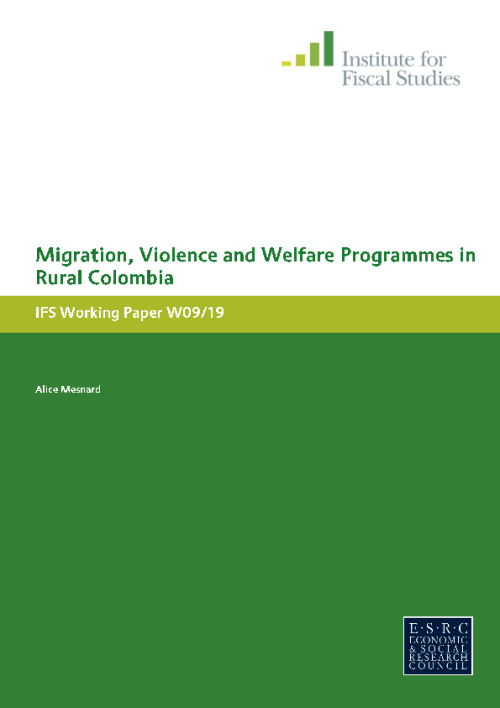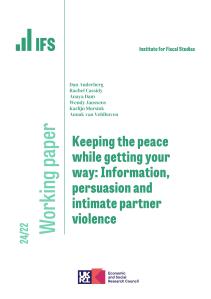This paper studies migration decisions of very poor households in an environment with a high level of violence. By matching detailed retrospective data on violence levels in Colombian rural municipalities with a household survey collected for the evaluation of the "Familias en Acción" welfare programme, the empirical analysis takes into account possible selection problems of the sample and the key issue of endogeneity of violence. The main results show that high levels of violence encourage households to leave their municipality of residence but that welfare programmes may mitigate these flows, provided that the incidence of violence is not unduly high. This is consistent with the fact that the households under study are liquidity constrained: when violence is high, cash transfers may enable them to leave their municipality of residence, whereas, in more normal circumstances, receiving cash transfers increases the benefits to stay where they are registered. Further evidence using household shocks and wealth confirm that liquidity constraints play a large role in explaining such heterogeneous impacts of the programme along violence levels. Other important determinants of migration are the type of property rights and the health insurance rural households can benefit from.










